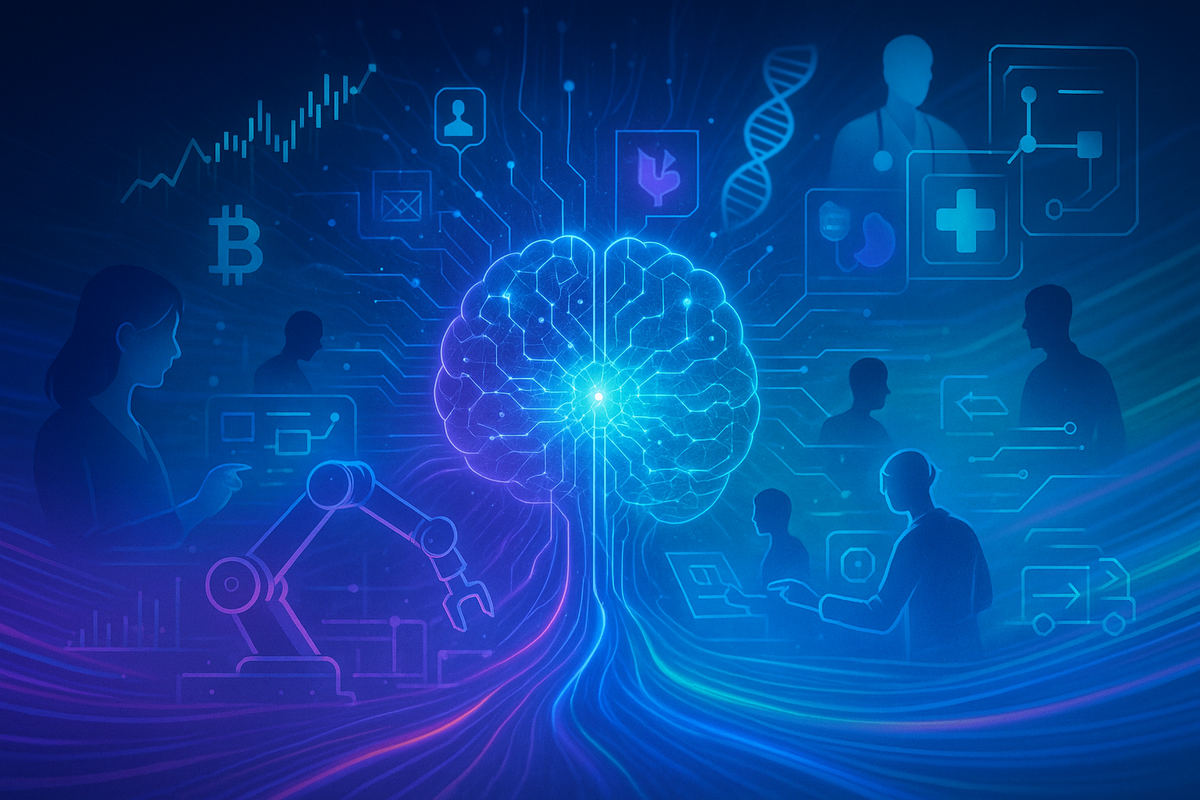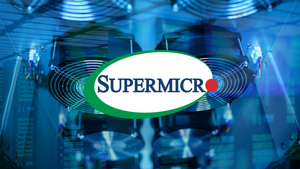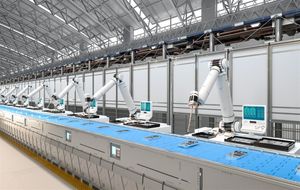
The financial world is abuzz with the transformative power of Advanced Artificial Intelligence (AI) and Generative AI, a technological wave rapidly re-sculpting the operational fabric of industries worldwide. From creating sophisticated, human-like content to enabling machines to autonomously plan and execute complex goals, these AI breakthroughs are not merely incremental improvements but fundamental shifts in how businesses operate, innovate, and compete. The democratized access to these powerful tools is accelerating their adoption, marking a new era of efficiency and unprecedented possibilities across sectors from finance to healthcare and manufacturing.
At the forefront of this revolution is the emergence of Agentic AI, a paradigm shift where AI systems move beyond simple query-and-response mechanisms to become self-directing entities capable of achieving user-defined objectives without constant human oversight. This, coupled with the widespread availability of user-friendly AI tools and open-source models, is creating a fertile ground for innovation, pushing the boundaries of what was once thought possible and challenging established market dynamics.
The Unfolding of Autonomous AI and its Profound Significance
The period leading up to September 2025 has been characterized by groundbreaking advancements in AI, particularly in the realm of Agentic AI and the broad democratization of these technologies. Agentic AI, often referred to as autonomous AI, represents a significant leap forward, empowering AI systems to not only understand complex objectives but also to devise strategies, break them down into actionable tasks, and coordinate with other agents or robotic systems to achieve those goals. This includes the development of multi-agent collaboration frameworks and self-healing systems, allowing AI to autonomously detect and resolve issues, thereby enhancing efficiency and reducing the need for human intervention in routine operations.
A key development highlighted by researchers like Yann LeCun, chief AI scientist at Meta, is the concept of "world models." These models learn by interacting with their environment through sensory input, much like human infants, aiming to create truly intelligent robots capable of autonomous learning and adaptation in the real world. This is already being seen in applications such as Amazon's (NASDAQ: AMZN) integration of generative AI to optimize robot movements in warehouses, streamlining order processing and logistics. Furthermore, generative AI is proving invaluable in scientific simulation and materials discovery, with tools like NVIDIA (NASDAQ: NVDA) Earth2Studio and Google (NASDAQ: GOOGL) DeepMind's AlphaFold making advanced modeling more accessible and accelerating breakthroughs in fields from climate modeling to quantum computing materials.
Simultaneously, the democratization of AI has gained unprecedented momentum. This movement focuses on making AI tools, resources, and capabilities accessible to a broader audience beyond specialized experts. User-friendly interfaces, cloud-based AI-as-a-Service (AIaaS) offerings, and flexible pricing models have lowered the entry barrier for businesses of all sizes. Open-source large language models (LLMs) such as Meta's (NASDAQ: META) LLaMA 3, Mistral, and DeepSeek R1 are driving innovation by providing transparent and accessible AI, often outperforming larger closed models in specific benchmarks. The AIaaS sector alone is projected to reach USD 487.7 billion by 2034, underscoring the widespread adoption and economic impact of this trend.
Market Repercussions: Winners, Losers, and Shifting Tides
The rapid advancements in AI are creating a seismic shift in market dynamics, presenting immense opportunities for some companies while posing significant challenges for others. The global AI market is witnessing massive investments, with Gartner projecting global AI spending to reach $1.5 trillion in 2025, signaling a period of intense competition and innovation.
Companies at the forefront of AI hardware and infrastructure are poised for substantial gains. NVIDIA (NASDAQ: NVDA) continues its dominance in the AI chip market, with its GPUs being the backbone of most AI training and inference operations. Strategic partnerships, such as a reported $100 billion investment with OpenAI for AI data centers, further solidify its position. Tech giants like Microsoft (NASDAQ: MSFT) and Google (NASDAQ: GOOGL) are also strong contenders, with extensive investments in AI research, infrastructure, and the integration of AI tools like Microsoft Copilot into their product ecosystems. Meta Platforms (NASDAQ: META) is making significant strides with its "world models" research, open-source LLMs like LLaMA 3, and consumer-facing AI applications, indicating a broad strategic push. OpenAI, though not publicly traded, remains a key driver of innovation with its advanced models like GPT-4o and ambitious projects like Stargate, influencing the entire AI software landscape. Early adopters across all sectors, from finance to healthcare, that strategically integrate AI for efficiency and innovation are likely to gain a significant competitive advantage, realizing double-digit boosts in efficiency and revenue.
Conversely, companies slow to embrace AI risk being left behind. Businesses that fail to integrate AI into their operations will struggle to match the efficiency and innovation of their AI-powered competitors. Those reliant on outdated operational models and workflows will find their processes inefficient and unsustainable in the face of AI-driven transformation. Industries heavily dependent on repetitive manual labor, without a clear strategy for re-skilling their workforce, are particularly vulnerable to disruption as Agentic AI and robotics accelerate automation. Furthermore, firms without AI-enabled workflows may face a talent drain, as developers increasingly expect to work with cutting-edge tools. The shift in skill requirements is already evident, with new roles like AI curators and prompt engineers emerging, emphasizing continuous learning and adaptation.
Broader Implications and the Path Forward
The impact of advanced AI extends far beyond corporate balance sheets, ushering in broader societal and ethical considerations. The pervasive ripple effects touch communications, journalism, law, and government, highlighting the dual-use nature of AI where both "good and bad actors" can achieve their goals with increased efficacy. The proliferation of deepfakes and synthetic media presents significant challenges to authenticity and trust, demanding robust countermeasures and critical public awareness.
Regulatory bodies worldwide are actively engaging with the complexities of AI, striving to balance innovation with ethical oversight. Frameworks like the EU AI Act are providing much-needed clarity for the deployment of autonomous AI, addressing concerns around data privacy, bias, and the environmental footprint of large models. Governments are increasingly adopting AI tools to enhance efficiency and transparency in public services, while also grappling with the ethical dilemmas inherent in AI deployment and the management of misinformation. Historically, every major technological revolution, from the Industrial Revolution to the internet boom, has brought about profound societal shifts, including job displacement and the creation of new industries. AI's current trajectory mirrors these patterns, albeit at an accelerated pace, necessitating proactive policy-making and societal adaptation.
Looking ahead, the short-term (late 2025 - 2026) will likely see a wider adoption of Agentic AI for complex business workflows and customer interactions, alongside advancements in generative AI for sophisticated video, 3D content, and structured data creation. The focus on smaller, more efficient open-source models will enable deployment at the "edge" for increased speed and privacy. Expect heightened debates around AI governance and ethics, with regulatory bodies refining their frameworks. In software development, generative AI will become an even more integral part of workflows, automating coding, testing, and security scanning.
In the long-term (beyond 2026), the vision of general-purpose "world models" could fundamentally alter the trajectory of AI. These systems, capable of learning autonomously from their environment, hold the key to truly general-purpose AI and highly adaptable robotics. Strategic pivots or adaptations required by businesses will revolve around integrating AI deeply into core workflows, redesigning operating models, and investing in robust cybersecurity and ethical AI frameworks. Market opportunities will continue to grow in AI-as-a-Service (AIaaS), custom AI solutions for niche industries, ethical AI and security solutions, and the ever-expanding demand for AI infrastructure and hardware. The emergence of new AI-driven economies and business models, potentially leveraging "AI nurse" or "AI agent" pricing, could redefine service delivery and value creation.
What to Pay Attention to Next
As this AI revolution continues to unfold, several critical areas warrant close attention from businesses, policymakers, and the public alike. In the short term, observe the pace of enterprise adoption of Agentic AI, particularly in automating multi-step business workflows. The success stories, or challenges, in these early implementations will provide valuable insights into the practical scalability and impact of autonomous systems. Also, keep an eye on the evolution of generative content creation, especially in video and 3D, and how it transforms industries like entertainment, advertising, and product design. The performance and capabilities of smaller, more efficient open-source AI models will be crucial, as they promise to democratize advanced AI further by enabling deployment on a wider range of devices and applications.
Longer-term, the development of "world models" as envisioned by leading AI researchers could fundamentally alter the trajectory of AI. These systems, capable of learning autonomously from their environment, hold the key to truly general-purpose AI and highly adaptable robotics. Strategic pivots or adaptations required by businesses will revolve around integrating AI deeply into core workflows, redesigning operating models, and investing in robust cybersecurity and ethical AI frameworks. Market opportunities will continue to grow in AI-as-a-Service (AIaaS), custom AI solutions for niche industries, ethical AI and security solutions, and the ever-expanding demand for AI infrastructure and hardware. The emergence of new AI-driven economies and business models, potentially leveraging "AI nurse" or "AI agent" pricing, could redefine service delivery and value creation.
The AI Revolution: A Concluding Perspective
The advancements in Advanced AI and Generative AI, particularly the rise of Agentic AI and the accelerating democratization of these technologies, represent a watershed moment in technological history. Their transformative impact is not confined to a single sector but is a pervasive force reshaping global industries, from finance to manufacturing, healthcare, and retail. The promise of unprecedented efficiency, innovation, and new revenue streams is undeniable, drawing massive investments and fundamentally altering competitive landscapes.
Moving forward, businesses must prioritize a clear AI strategy, embracing these tools not as mere enhancements but as foundational elements for future growth. Investing in ethical AI frameworks and robust cybersecurity measures will be paramount to navigate the challenges of data privacy, bias, and misinformation. Investors should closely watch companies like NVIDIA (NASDAQ: NVDA), Microsoft (NASDAQ: MSFT), Google (NASDAQ: GOOGL), and Meta Platforms (NASDAQ: META), which are strategically positioned to capitalize on this revolution. Beyond these tech giants, pay attention to the countless innovative companies across various sectors that are successfully integrating AI to gain a competitive edge. The coming months will be critical in demonstrating the practical applications and scaling of these technologies, as the world adapts to a new era defined by autonomous intelligence and ubiquitous AI.






